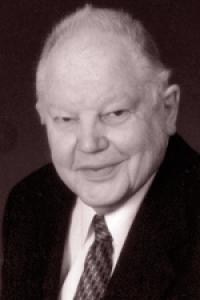
Eugène Ney Terre'Blanche was an Afrikaner nationalist who founded and led the neo-Nazi Afrikaner Weerstandsbeweging. Prior to founding the AWB, he served as a South African Police officer, was a farmer, and was an unsuccessful Herstigte Nasionale Party candidate for local office in the Transvaal. He was a major figure in the right-wing backlash against the collapse of apartheid. His beliefs and philosophy have continued to be influential amongst white supremacists in South Africa and across the world.

Bold Forbes was a champion thoroughbred racehorse, winner of the 1976 Kentucky Derby and 1976 Belmont Stakes.

Brian McGuire Cashman is an American baseball executive for the New York Yankees of Major League Baseball (MLB). He has served as the general manager and senior vice president of the Yankees since 1998. During Cashman's tenure as general manager, he inherited a core that was built by Gene Michael and Bob Watson and the Yankees have won seven American League pennants and four World Series championships.
The Arkansas Derby is an American flat Thoroughbred horse race for three-year-olds held annually in April at Oaklawn Park in Hot Springs, Arkansas. It is currently a Grade I race run over a distance of 1 1/8 miles on dirt.
Hirsch Jacobs was an American thoroughbred horse trainer and owner.
James Dougan Norris was an American sports businessman, with interests in boxing, ice hockey, and horse racing. He was the son of James E. Norris and half-brother of Bruce Norris and Marguerite Norris. He is a member of the Hockey Hall of Fame.

George Dunton Widener Jr. was an American businessman and thoroughbred racehorse owner; one of only five people ever designated "Exemplars of Racing" by the National Museum of Racing and Hall of Fame.

Eugene Willford "Gene" Markey was an American writer, producer, screenwriter, and highly decorated naval officer.
Eugene D. James was an American Thoroughbred horse racing jockey.

Nelson Bunker Hunt was an American oil company executive. He was a billionaire whose fortune collapsed after he and his brothers William Herbert and Lamar tried to corner the world market in silver but were prevented by government intervention. He was also a thoroughbred horse breeder and a major sponsor of the John Birch Society.
Burgoo King (1929–1946) was an American Thoroughbred racehorse who won the first two legs of the U.S. Triple Crown series but who did not run in the final race, the Belmont Stakes.
Charles W. Engelhard Jr. was an American businessman, a major owner in Thoroughbred horse racing, and a candidate in the 1955 New Jersey State Senate elections. He controlled an international mining and metals conglomerate, Engelhard, founded by his father.
Fitz Eugene Dixon Jr. was an American educator, sportsman, and philanthropist.
Kotashaan was a Thoroughbred racehorse who competed in France and earned Champion honors in the United States.
Paul T. Adwell was an American Thoroughbred horse racing trainer best known for winning the second leg of the U.S. Triple Crown series in 1976.
Elocutionist was an American Thoroughbred racehorse best known for winning the second leg of the U.S. Triple Crown series.
Hiram Eugene Leigh was an American Thoroughbred racehorse trainer/owner and breeder who had a highly successful career in the United States as well as in Europe.
John L. Lively is a retired American Thoroughbred horse racing jockey who won 3,468 career races, including the 1976 Preakness Stakes, as well as ten riding titles at Ak-Sar-Ben Racetrack in Omaha, Nebraska plus two at Oaklawn Park in Hot Springs, Arkansas and another at Remington Park in Oklahoma City, Oklahoma.

Mark E. Casse is a Thoroughbred racehorse trainer whose most notable horses include 2015 American champion turf mare Tepin and Canadian Horses of the Year Sealy Hill (2007), Uncaptured (2012), Lexie Lou (2014), Catch A Glimpse (2015) and Wonder Gadot. He has won thirteen Sovereign Awards for outstanding trainer in Canada and has been the leading trainer at Woodbine Racetrack 14 times. In 2019, he won his first American Classic with War of Will in the Preakness Stakes.
The ownership of California Chrome during his racing career was held by two entities. The first was DAP Racing, a horse racing partnership between Perry Martin, at the time from Yuba City, California, and Steve Coburn of Topaz Lake, Nevada, along with their spouses, Denise Martin and Carolyn Coburn. DAP stands for "Dumb Ass Partners"—a tongue-in-cheek response to a passerby who questioned their wisdom in purchasing the partnership's first racehorse, the mare Love the Chase, who became the dam of 2014 Kentucky Derby and Preakness Stakes winner California Chrome, her first foal. Coburn owned a 30% interest in the horse and in July 2015 sold his share to Taylor Made Farm. Following the sale, Martins and Taylor Made each sold "a few" shares in the stallion to "select breeders who would support the horse," forming the ownership syndicate California Chrome, LLC. The DAP partnership had jointly owned other horses, including California Chrome's full siblings and his dam, Love the Chase. These horses were distributed between the former partners. In 2019, the horse was sold to JS Company of Japan and stands at stud there.





